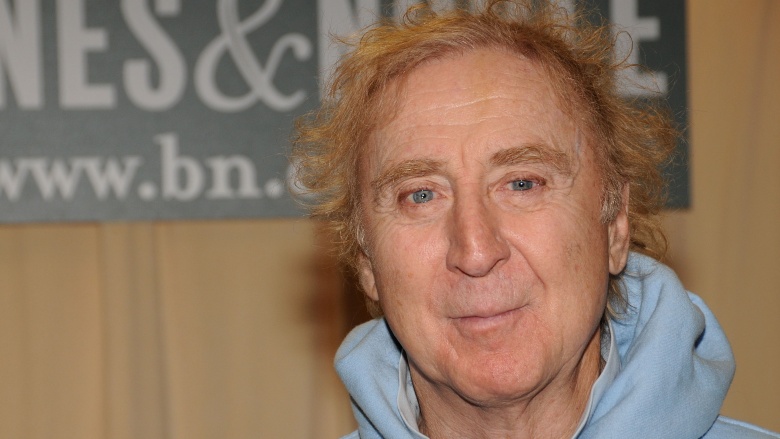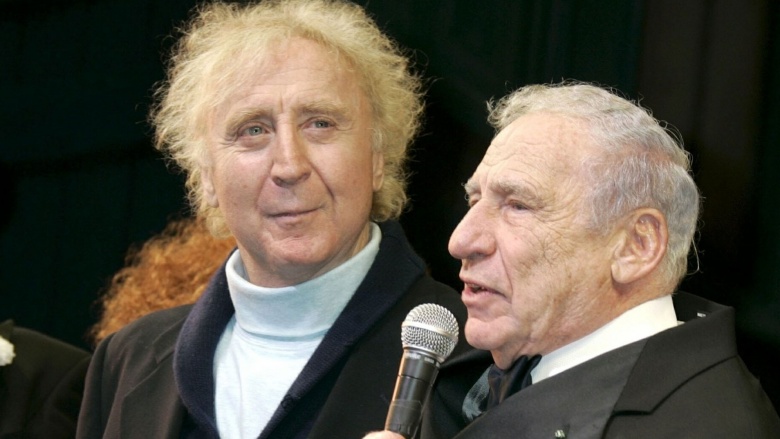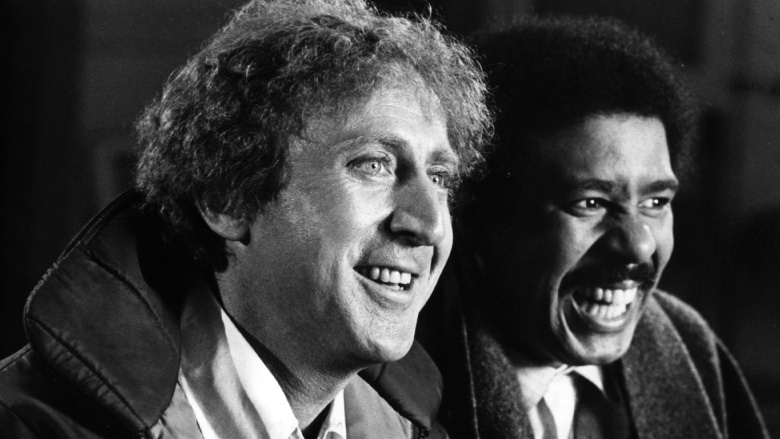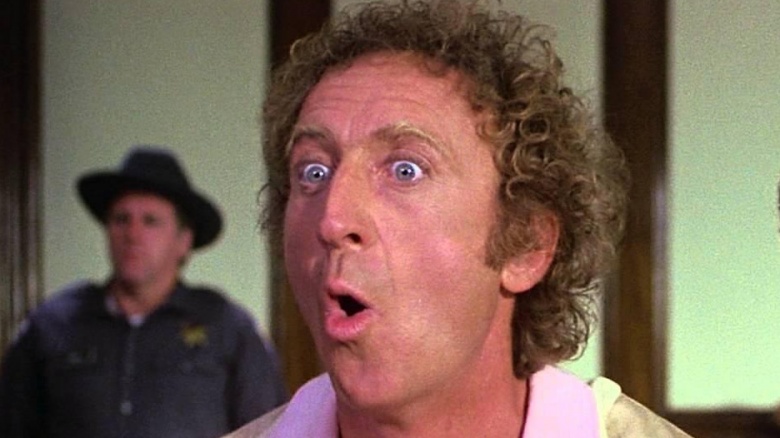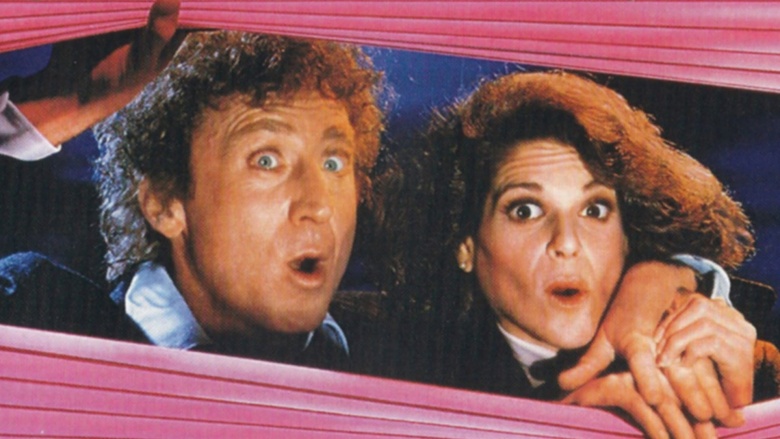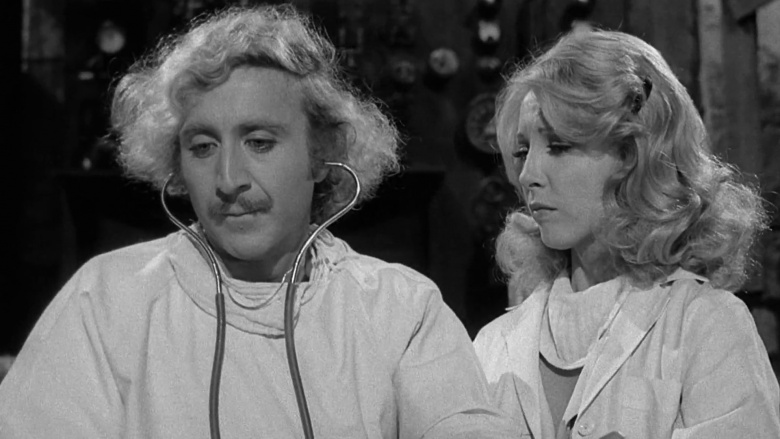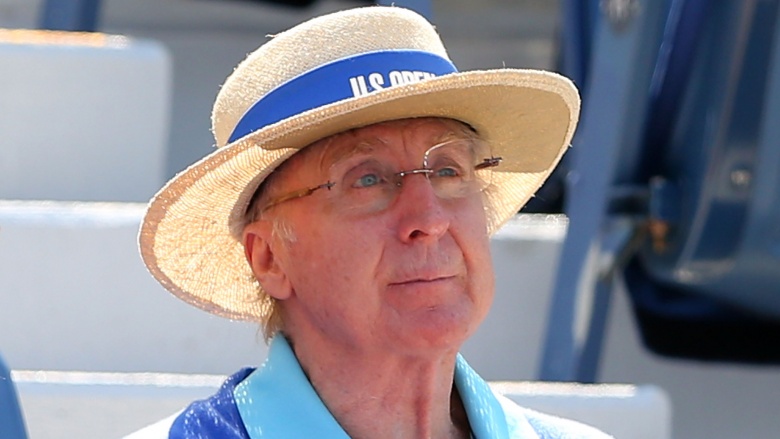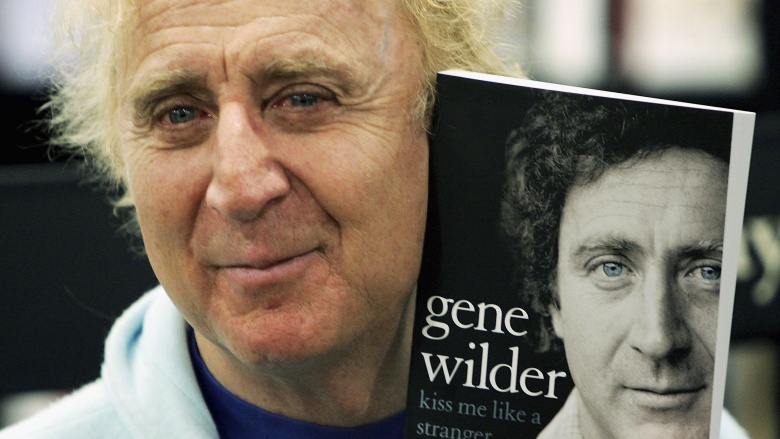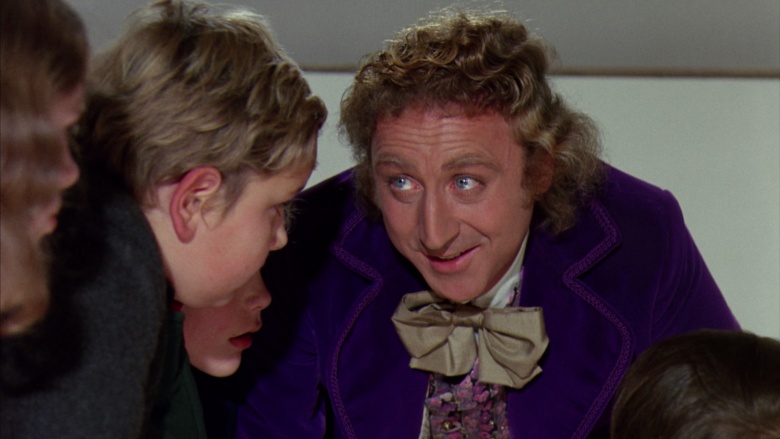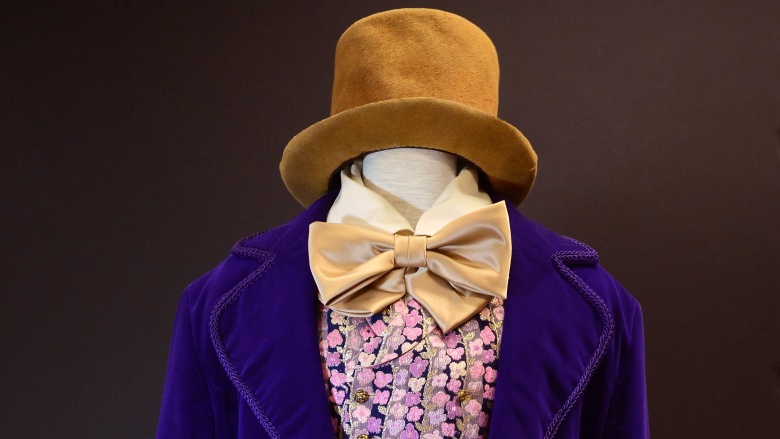Things You Never Knew About Gene Wilder
On August 29, 2016, we said farewell to a comedy legend after word surfaced that Gene Wilder, star of such films as The Producers, Blazing Saddles, Young Frankenstein, Stir Crazy, and Willy Wonka and the Chocolate Factory, had passed away from complications of Alzheimer's disease at the age of 83. Wilder's work left an indelible impression, especially his classic collaborations with Mel Brooks, Mel Stuart, Woody Allen, and Richard Pryor. As we take the time to mark his passing and celebrate his career, let's take a look back at his life and explore some things you probably didn't know about this beloved star.
He was Jewish, and Gene Wilder wasn't his real name
Wilder was born Jerome Silberman in Milwaukee, Wisconsin. His father and maternal grandparents were Russian Jewish immigrants. While Wilder identified as Jewish, he never considered himself particularly religious. In his 2005 memoir, Wilder explained, "I have no other religion. I feel very Jewish and I feel very grateful to be Jewish. But I don't believe in God or anything to do with the Jewish religion." As his acting career was taking off in off-Broadway stage productions, he decided he needed a stage name. He chose Gene for both a cousin he admired and the character of Eugene Gant in the novel Look Homeward, Angel. The last name Wilder was inspired by Thornton Wilder, an author whose work he greatly enjoyed.
A fateful meeting with Mel Brooks launched his career
Wilder's acting career started with stage productions, both on and off-Broadway. After a role in the 1961 production of Roots, Wilder took a role in 1963's The Complaisant Lover, for which he received a Derwent Award for Best Performance by an Actor in a Non-featured Role. His next stage role, in Mother Courage and Her Children, helped forge a life-altering connection: his co-star in the show was Anne Bancroft, who introduced Wilder to her boyfriend—Mel Brooks. Brooks was writing a screenplay called Springtime for Hitler, which would eventually become the 1968 movie The Producers. Brooks felt that Wilder was perfect for the role of Leo Bloom, and his Oscar-nominated appearance in the movie launched his budding film career in earnest.
He came up with the amazing introduction to Willy Wonka
When Wilder auditioned for the title role in 1971's Willy Wonka and the Chocolate Factory, director Mel Stuart offered Wilder the part practically on the spot. Wilder accepted, but under one condition—he wanted to give audiences a very special first introduction to Wonka:
"When I make my first entrance, I'd like to come out of the door carrying a cane and then walk toward the crowd with a limp," Wilder told Stuart. "After the crowd sees Willy Wonka is a cripple, they all whisper to themselves and then become deathly quiet. As I walk toward them, my cane sinks into one of the cobblestones I'm walking on and stands straight up, by itself... but I keep on walking, until I realize that I no longer have my cane. I start to fall forward, and just before I hit the ground, I do a beautiful forward somersault and bounce back up, to great applause." Stuart asked Wilder why he wanted to do it that way, and Wilder explained, "Because from that time on, no one will know if I'm lying or telling the truth." The scene in the movie occurs almost exactly like Wilder originally envisioned it.
He and Richard Pryor were supposed to be in Trading Places
When Wilder and Richard Pryor paired up in the hit 1976 film Silver Streak, they struck comedy gold, revealing a seemingly effortless screen chemistry they'd be called upon to recapture repeatedly throughout their careers. In fact, if it hadn't had been for Pryor's problems with addiction, we would have seen Pryor and Wilder star in Trading Places instead of Dan Aykroyd and Eddie Murphy. Nevertheless, the pair had audiences howling with their antics in Stir Crazy, which was followed by See No Evil, Hear No Evil and 1991's Another You. By the time of the last film, Pryor was struggling with multiple sclerosis, and Another You ended up being the last big-screen appearance for either actor.
Not all of his films were successful
While Wilder was involved with some very successful screenplays—including Young Frankenstein—not all of his work met with critical or commercial acclaim. His directorial debut came in 1975 with The Adventure of Sherlock Holmes' Smarter Brother. Viewers and critics were underwhelmed by the film, and it earned only $9.4 million during its theatrical release. He went on to write, direct, and star in three more movies over the next ten years: The World's Greatest Lover, The Woman in Red, and Haunted Honeymoon, all three of which were met with negative reviews and fair to abysmal performance in theaters. His reunion with Richard Pryor for 1989's See No Evil, Hear No Evil flopped, as did Funny About Love in 1990 and Another You (another co-starring effort with Pryor) in 1991.
He was married four times
Wilder's first marriage, to Mary Mercier, lasted from 1960 to 1965. He then married Mary Joan Schutz in 1967 and adopted her daughter. The couple divorced after seven years together; unfortunately, he and his adopted daughter became estranged. Wilder remained unattached until 1981, when he met Saturday Night Live actress Gilda Radner on the set of the movie Hanky Panky. They married in 1984, but the marriage would be cut short by devastating news. Radner started experiencing fatigue and upper leg pain while filming 1986's Haunted Honeymoon, and after several false diagnoses, she was diagnosed with Stage IV ovarian cancer later that year. After a brief period of remission, the cancer returned three years later, claiming her life on May 20, 1989. During the filming of See No Evil, Hear No Evil, Wilder met Karen Webb, who coached him in lip-reading for the role. After Radner's death, the two reconnected, marrying in 1991. Webb and Wilder would remain together until his passing in 2016.
He'd already beaten cancer
After going through the struggle against cancer with Radner, Wilder himself was diagnosed with Non-Hodgkin's lymphoma in 1999. After undergoing chemotherapy and radiation treatments, his lymphoma entered remission, but doctors let Wilder know there was a good chance the cancer would return. His oncologist recommended a stem-cell transplant where the body is stimulated to create stem cells, which are collected and then transplanted back into the bloodstream. The radical treatment worked, and Wilder was pronounced to be in complete remission by 2002.
He was diagnosed with Alzheimer's disease
In his later years, Wilder suffered from Alzheimer's disease. He was diagnosed in 2013, but his condition was withheld from the public. In a statement following Wilder's death, his nephew explained, "We have been among the lucky ones—this illness-pirate, unlike in so many cases, never stole his ability to recognize those that were closest to him, nor took command of his central-gentle-life affirming core personality. The decision to wait until this time to disclose his condition wasn't vanity, but more so that the countless young children that would smile or call out to him 'there's Willy Wonka,' would not have to be then exposed to an adult referencing illness or trouble and causing delight to travel to worry, disappointment or confusion. He simply couldn't bear the idea of one less smile in the world."
He was also a writer and painter
After his retirement from the screen, Wilder turned his attention to his other pastimes. He and his wife enjoyed painting watercolors together, and Wilder became an accomplished author. In 2005, he released a very personal memoir, Kiss Me Like a Stranger: My Search for Love and Art, covering his life from childhood up to Radner's death in 1989. Following his memoir, Wilder went on to pen several books, including 2007's My French Whore, followed by The Woman Who Wouldn't in 2008, a short story collection in 2010 called What Is This Thing Called Love?, and Something to Remember You By: A Perilous Romance in 2013.
He didn't really miss Hollywood
After retiring from acting, Wilder only offered a handful of interviews. In a 2008 special about Wilder on the Turner Classic Movies channel, Alec Baldwin interviewed him about his career, and he confirmed he had essentially walked away for good. "I don't like show business, I realized," he explained. "I like the show, but I don't like the business."
Time Out New York interviewed Wilder in 2013 and took the opportunity to ask him about his retirement, asking if he'd be open to returning if a suitable project came his way. "I'm tired of watching the bombing, shooting, killing, swearing and 3-D. I get 52 movies a year sent to me, and maybe there are three good [ones]," he shrugged. "That's why I went into writing. It's not that I wouldn't act again. I'd say, 'Give me the script. If it's something wonderful, I'll do it.' But I don't get anything like that."
Ella Fitzgerald helped him say goodbye
Wilder loved Fitzgerald's music, and his nephew Jordan Walker-Pearlman described Gene's final moments in a statement from the family. "As our hands clutched and he performed one last breath, the music speaker—which was set to random—began to blare out one of his favorites: Ella Fitzgerald," wrote Walker-Pearlman. "There is a picture of he and Ella meeting at a London Bistro some years ago that [was among his] cherished possessions. She was singing 'Somewhere Over The Rainbow' as he was taken away." We offer our deepest sympathies to Wilder's family and friends, as well as all the fans around the world in mourning.
"For some moments in life, there are no words."—Willy Wonka, Willy Wonka and the Chocolate Factory, 1971

